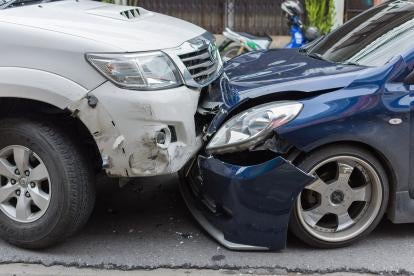Being involved in a car accident can be a terrifying experience, often leaving you in a state of shock and confusion. However, taking the right steps immediately after a collision can help mitigate damages and ensure your protection. In this blog post, we’ll guide you through the essential actions to take after a car accident, giving you peace of mind and helping you navigate through this challenging situation.
Stay at the Scene and Assess Injuries
It’s crucial to remain at the scene until instructed otherwise by the police. Leaving the scene prematurely, especially if you were at fault, can result in criminal penalties for potential hit-and-run charges. First and foremost, check on the well-being of yourself and your passengers. Even if injuries are not immediately apparent, be mindful of any cuts, bruises, or pain that might arise later due to adrenaline.
Call Emergency Services
As soon as the accident occurs, dial 911 to report the collision and request police and medical assistance, if necessary. Regardless of who is at fault or the extent of property damage, contacting the police is vital. The resulting police report becomes crucial evidence when determining fault and liability.
Exchange Information and Gather Evidence
After contacting the police, exchange information with the other driver involved. Obtain the following details: names, phone numbers, addresses, driver’s license numbers, license plate numbers, and basic insurance information. If there are passengers, try to gather their information as well. Avoid admitting fault or apologizing at the accident scene. Be polite, but refrain from making any statements that can be used against you in a future civil proceeding. Additionally, identify any witnesses and collect their names, contact numbers, and addresses.
Document the Accident Scene
Capture the accident scene by taking photographs of your vehicle and the other vehicles involved. If you sustain visible injuries such as bruises or cuts, photograph those as well. These visual records become crucial evidence later on.
Notify Your Insurance Company
After the accident and once you have spoken to the authorities, inform your insurance company about the collision. Be honest and provide an accurate account of what occurred.
Seek Medical Attention
If you or any passengers experience pain or suspect injuries at the scene, inform the police officer to call for an ambulance. It is crucial to seek medical treatment and visit the emergency room to address any potential injuries. Keep track of your medical treatments and any prescribed medication. Pain symptoms from car accidents may manifest a day or two after the incident, so if you experience any discomfort, don’t hesitate to seek medical help.
Keep Detailed Records
Maintain meticulous records of your medical treatment, including the names of healthcare providers and any medications received. If you need to take time off work due to the accident, record those missed days as well. Additionally, keep track of any out-of-pocket expenses related to the collision.
Limit Communication
Refrain from discussing the accident with anyone other than your personal injury attorney, the police, and your insurance company. If an agent from the other driver’s insurance company contacts you, be polite and direct them to your attorney.
Beware of Early Settlement Offers
Be cautious of early settlement offers from insurance companies. Consulting with a personal injury attorney is crucial to assess your case regarding property damage and medical treatment. An attorney can help maximize the value of your case. In New Jersey, you generally have a two-year window from the accident date to file a lawsuit if a settlement cannot be reached.
Conclusion
While car accidents are situations we hope to never encounter, being prepared and aware of the necessary steps to take after a collision can provide you with much-needed confidence and protection. By following these essential guidelines, you can protect your rights, seek appropriate medical treatment, and navigate the legal process with the assistance of an experienced personal injury attorney.



 />i
/>i

